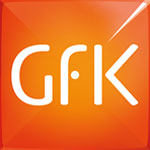Inflation affecting consumer sentiment in Germany

The recently more uncertain international environment and growing fears of inflation led to a slight downturn in consumer sentiment in March. These factors overshadowed the ongoing favourable framework conditions for consumers, such as growth in jobs and incomes. Nevertheless, consumer sentiment remained very high. The potential impact of the natural and environmental disaster in Japan has not yet been taken into account as the survey had already been carried out by the time the devastating earthquake and its repercussions hit.
Economic expectations: level high despite decline
After marginal losses in the previous month, economic expectations recorded a somewhat steeper fall in March with a drop of 7.6 points. Nevertheless, at 49.5 points at present, the level is still very high and is up by 45 points compared with the same month in the previous year.
Consumers continue to see the German economy as being on an upward growth trend, although the euphoria has recently been curbed slightly. Ongoing unrest in North Africa and the Middle East, as well as soaring energy and commodity prices, are the main reasons for the slight slowdown this year of the strong momentum seen in the economy in 2010. At 3.6%, growth in real gross domestic product in 2010 was the strongest since German reunification. The Ifo Business Climate Index also dipped marginally in March, although it shows no indication of events in Japan posing a threat to the upswing in Germany.
Income expectations: only slight losses
The decline in consumers' economic expectations also affected income expectations in March. However, at 2.4 points the decline was comparatively moderate and the indicator presently stands at 40.5. The year-on-year rise of 27 points also attests to the ongoing very high level recorded by income sentiment.
The sustained positive development in the labour market and ensuing rise in wages and salaries are the main factors behind the good result for income expectations. The excellent financial position of many companies has enabled them to bring forward more generous wage and salary increases than in previous years and to grant one-off payments. This is stabilising the purchasing power of many private households and is likely to have considerably mitigated the negative effects resulting from the recent rise in inflation fears.
Propensity to buy: moderate decrease
The propensity to buy indicator also failed to maintain the previous month's level in March and the indicator fell 4.6 points to 34.3 points. Nonetheless, this still constitutes a rise of almost 11 points compared with the previous year.
As before, the propensity to buy is at a good level in Germany. However, rising inflation is beginning to have a greater impact, with the result that the propensity to buy indicator has now declined for two months in a row. Experience has shown that consumer expectations of higher prices generally curb the propensity to buy.
Consumer climate: upward trend halted
The overall indicator is forecasting a value of 5.9 points for April 2011 after a revised value of 6.0 points in March. The upward trend in the consumer climate has therefore been halted for the time being. Despite the small setback, private consumption will continue to play an important role in macroeconomic development. Its importance will increase even further if growing risks in the international arena mean that exports fail to expand as quickly as economic experts were expecting only a few weeks ago. GfK confirms its forecast published at the start of February, which stated that private consumption would increase by around 1.5% in real terms this year.
The survey
These findings are extracts from the "GfK consumer climate MAXX survey", which is based on around 2000 consumer interviews conducted each month on behalf of the EU Commission. The report contains charts, forecasts and a detailed commentary regarding the indicators. In addition, the report includes information on proposed consumer spending in 20 different areas of the consumer goods and services markets. The GfK consumer climate survey has been conducted since 1980.
Source: GfK

The GfK Association was established in 1934 as a non-profit organization for the promotion of market research. Its membership consists of approximately 600 companies and individuals. The purpose of the Association is to develop innovative research methods in close cooperation with academic institutions, to promote the training and further education of market researchers, to observe the structures and developments in society, the economy and politics that play a key role in private consumption, and to research their effects on consumers. Survey results are made available to the membership. The GfK Association is a shareholder in GfK SE.
Go to: http://www.gfk.com



